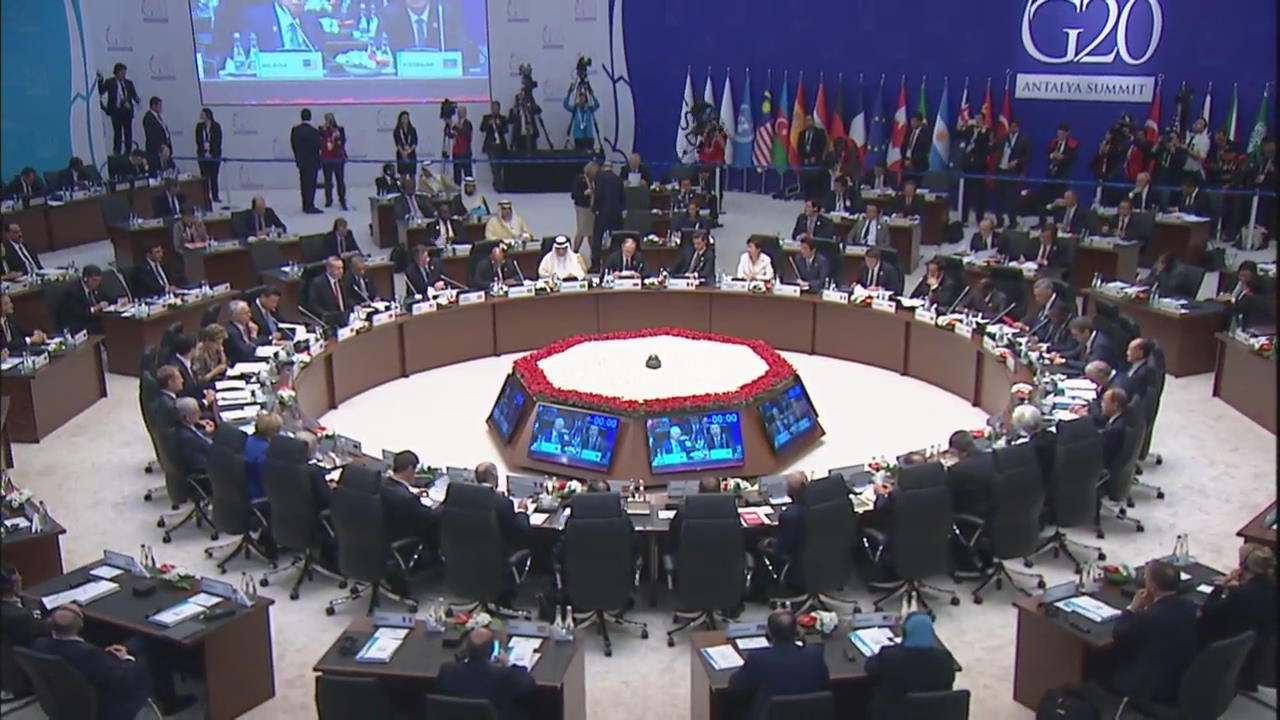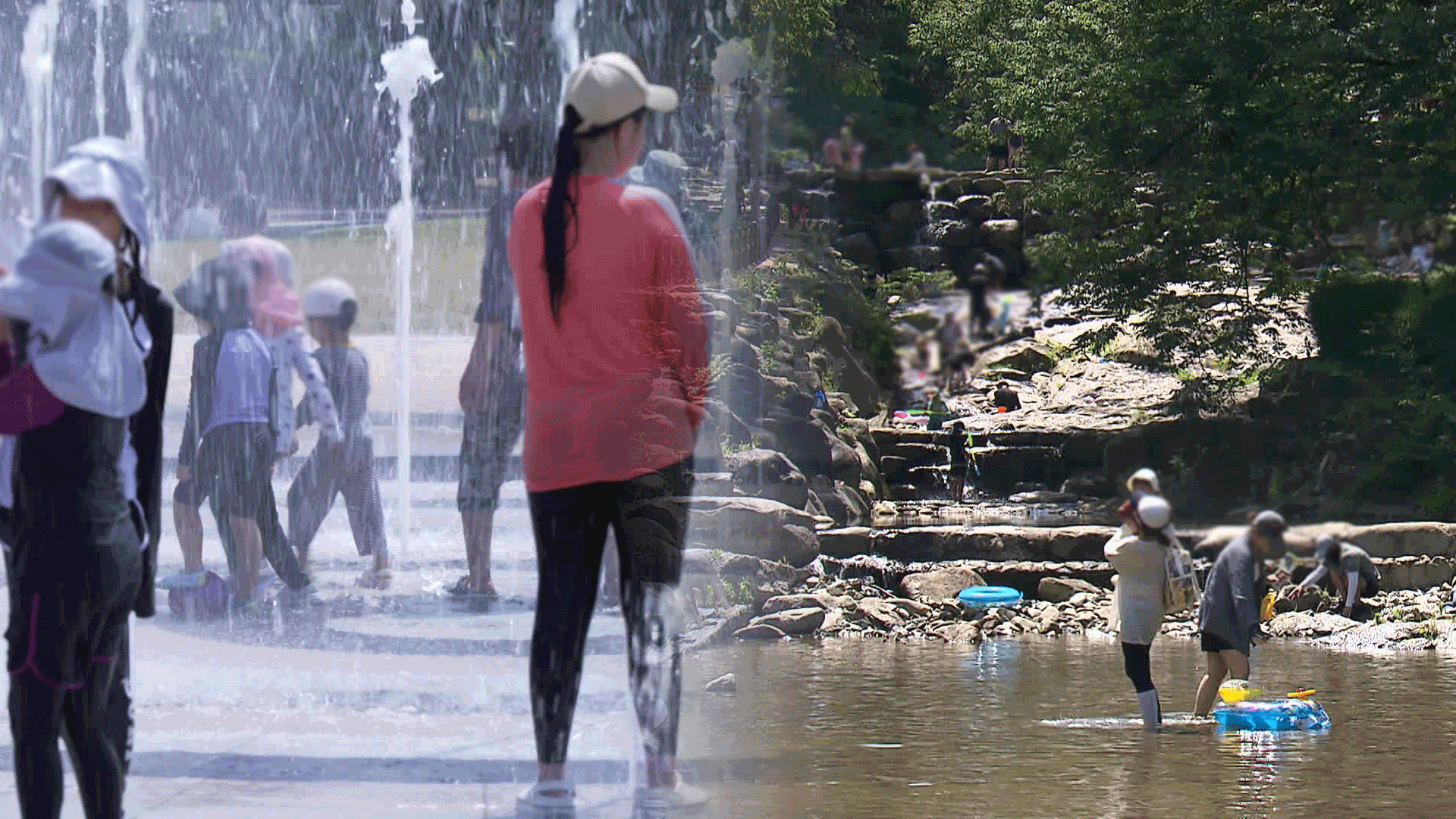Warming Oceans
입력 2016.08.19 (14:12)
수정 2016.08.19 (14:23)
읽어주기 기능은 크롬기반의
브라우저에서만 사용하실 수 있습니다.
[Anchor Lead]
The record heat wave this summer is even affecting the seawater. The water temperature across the surrounding seas has topped 30 degrees Celsius, similar to that of subtropical oceans.
[Pkg]
Strong sunlight beats down on waters south of Marado Island. Sea surface temperatures in the peak afternoon hours surge to over 30 degrees Celsius. Currently, a high water temperature zone of over 30 degrees has developed across a wide body of water ranging from the East China Sea to near Jejudo Island. The mercury level is even higher than that of the tropical seas near the equator. The biggest reason is the clear weather. Nearly no rainfall was reported in the past week in waters south of the Korean Peninsula and reaching to the East China Sea. The continuing heat wave has also increased the water temperature.
[Soundbite] Prof. Cho Yang-gi(Seoul Nat'l University) : "Amid extremely high temperatures this summer, atmospheric heat seeped into the sea and raised the water temperature."
Easterly winds over recent days are also raising temperature levels in the southern sea. Seawater flows to the right of the direction of the wind due to the Earth's rotation. For this reason, east winds have allowed hot seawater in the south to move up all the way to Korea's south coast. This is also why fresh water components of the Yangtze River have flowed north of Jeju Island. This year, typhoons have also been rare which typically serve to mix up seawater.
[Soundbite] Lee Jae-hak(Korea Institute of Ocean Science & Technology) : "For now, it's very unlikely a typhoon will pass through. High water temperatures are therefore expected to continue for the time being."
Experts forecast that high water temperatures could continue even after the heat abates because seawater cools off more slowly than air.
The record heat wave this summer is even affecting the seawater. The water temperature across the surrounding seas has topped 30 degrees Celsius, similar to that of subtropical oceans.
[Pkg]
Strong sunlight beats down on waters south of Marado Island. Sea surface temperatures in the peak afternoon hours surge to over 30 degrees Celsius. Currently, a high water temperature zone of over 30 degrees has developed across a wide body of water ranging from the East China Sea to near Jejudo Island. The mercury level is even higher than that of the tropical seas near the equator. The biggest reason is the clear weather. Nearly no rainfall was reported in the past week in waters south of the Korean Peninsula and reaching to the East China Sea. The continuing heat wave has also increased the water temperature.
[Soundbite] Prof. Cho Yang-gi(Seoul Nat'l University) : "Amid extremely high temperatures this summer, atmospheric heat seeped into the sea and raised the water temperature."
Easterly winds over recent days are also raising temperature levels in the southern sea. Seawater flows to the right of the direction of the wind due to the Earth's rotation. For this reason, east winds have allowed hot seawater in the south to move up all the way to Korea's south coast. This is also why fresh water components of the Yangtze River have flowed north of Jeju Island. This year, typhoons have also been rare which typically serve to mix up seawater.
[Soundbite] Lee Jae-hak(Korea Institute of Ocean Science & Technology) : "For now, it's very unlikely a typhoon will pass through. High water temperatures are therefore expected to continue for the time being."
Experts forecast that high water temperatures could continue even after the heat abates because seawater cools off more slowly than air.
■ 제보하기
▷ 카카오톡 : 'KBS제보' 검색, 채널 추가
▷ 전화 : 02-781-1234, 4444
▷ 이메일 : kbs1234@kbs.co.kr
▷ 유튜브, 네이버, 카카오에서도 KBS뉴스를 구독해주세요!
- Warming Oceans
-
- 입력 2016-08-19 14:13:35
- 수정2016-08-19 14:23:39

[Anchor Lead]
The record heat wave this summer is even affecting the seawater. The water temperature across the surrounding seas has topped 30 degrees Celsius, similar to that of subtropical oceans.
[Pkg]
Strong sunlight beats down on waters south of Marado Island. Sea surface temperatures in the peak afternoon hours surge to over 30 degrees Celsius. Currently, a high water temperature zone of over 30 degrees has developed across a wide body of water ranging from the East China Sea to near Jejudo Island. The mercury level is even higher than that of the tropical seas near the equator. The biggest reason is the clear weather. Nearly no rainfall was reported in the past week in waters south of the Korean Peninsula and reaching to the East China Sea. The continuing heat wave has also increased the water temperature.
[Soundbite] Prof. Cho Yang-gi(Seoul Nat'l University) : "Amid extremely high temperatures this summer, atmospheric heat seeped into the sea and raised the water temperature."
Easterly winds over recent days are also raising temperature levels in the southern sea. Seawater flows to the right of the direction of the wind due to the Earth's rotation. For this reason, east winds have allowed hot seawater in the south to move up all the way to Korea's south coast. This is also why fresh water components of the Yangtze River have flowed north of Jeju Island. This year, typhoons have also been rare which typically serve to mix up seawater.
[Soundbite] Lee Jae-hak(Korea Institute of Ocean Science & Technology) : "For now, it's very unlikely a typhoon will pass through. High water temperatures are therefore expected to continue for the time being."
Experts forecast that high water temperatures could continue even after the heat abates because seawater cools off more slowly than air.
The record heat wave this summer is even affecting the seawater. The water temperature across the surrounding seas has topped 30 degrees Celsius, similar to that of subtropical oceans.
[Pkg]
Strong sunlight beats down on waters south of Marado Island. Sea surface temperatures in the peak afternoon hours surge to over 30 degrees Celsius. Currently, a high water temperature zone of over 30 degrees has developed across a wide body of water ranging from the East China Sea to near Jejudo Island. The mercury level is even higher than that of the tropical seas near the equator. The biggest reason is the clear weather. Nearly no rainfall was reported in the past week in waters south of the Korean Peninsula and reaching to the East China Sea. The continuing heat wave has also increased the water temperature.
[Soundbite] Prof. Cho Yang-gi(Seoul Nat'l University) : "Amid extremely high temperatures this summer, atmospheric heat seeped into the sea and raised the water temperature."
Easterly winds over recent days are also raising temperature levels in the southern sea. Seawater flows to the right of the direction of the wind due to the Earth's rotation. For this reason, east winds have allowed hot seawater in the south to move up all the way to Korea's south coast. This is also why fresh water components of the Yangtze River have flowed north of Jeju Island. This year, typhoons have also been rare which typically serve to mix up seawater.
[Soundbite] Lee Jae-hak(Korea Institute of Ocean Science & Technology) : "For now, it's very unlikely a typhoon will pass through. High water temperatures are therefore expected to continue for the time being."
Experts forecast that high water temperatures could continue even after the heat abates because seawater cools off more slowly than air.
이 기사가 좋으셨다면
-
좋아요
0
-
응원해요
0
-
후속 원해요
0

















이 기사에 대한 의견을 남겨주세요.